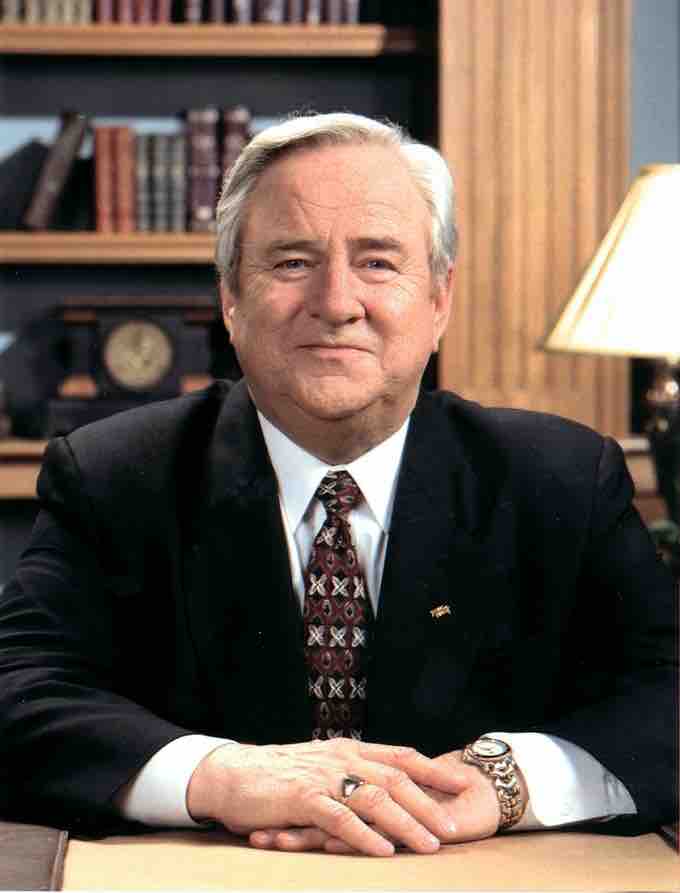Introduction: The Rise of the Religious Right
As Ronald Reagan campaigned for President in 1980, some of his strongest supporters were members of the Religious Right, including Christian groups like the Moral Majority, 61% of whom voted for him. By 1980, evangelical Christians had become an important political and social force in the United States. Some 1,300 radio stations in the country were owned and operated by evangelicals. Christian television programs, such as Pat Robertson’s The 700 Club and Jim Bakker’s The PTL (Praise the Lord) Club, proved enormously popular and raised millions of dollars from viewer contributions. For some, evangelism was a business, but most conservative Christians were true believers who were convinced that premarital and extramarital sex, abortion, drug use, homosexuality, and “irreligious” forms of popular and high culture were responsible for a perceived decline in traditional family values that threatened American society.
Origins of the Christian Right in the United States
Alienation of the Southern Democrats
In the 1960 presidential election, the alienation of Southern Democrats from the Democratic Party, as well as the fear of social disintegration provoked by the counterculture and social movements of the 60s, contributed to the rise of the Right. As the Democratic Party became identified with a pro-choice position on abortion and with nontraditional societal values, social conservatives, especially in the South, joined the Republican Party in increasing numbers.
Political Organization
The contemporary Christian Right became increasingly vocal and organized in reaction to a series of United States Supreme Court decisions (notably Bob Jones University v. Simon in 1974 and Bob Jones University v. United States in 1983, both of which addressed issues of racial discrimination in universities). It also engaged in battles over pornography, obscenity, abortion, state-sanctioned prayer in public schools, textbook contents (concerning evolution vs. creationism), homosexuality, and sexual education.
Grassroots Activism
Much of the Christian Right's power within the American political system is attributed to their extraordinary turnout rate at the polls; voters in the Christian Right tend to be highly motivated and driven to get out a viewpoint on issues they care about. As well as high voter turnout, the Christian Right also exhibits willingness to attend political events, knock on doors, and distribute literature. Members of the Christian Right are willing to do the electoral work needed to see their candidate elected. Because of their high level of devotion, most of this work is voluntary and unpaid.
Political Leaders and Institutions
Notable leaders and groups within the Religious Right are Robert Grant's advocacy group Christian Voice, Jerry Falwell's Moral Majority, Ed McAteer's Religious Roundtable Council, James Dobson's Focus on the Family, and Pat Robertson's Christian Broadcasting Network. Under this leadership, the new Religious Right combines conservative politics with evangelical and fundamentalist teachings. The birth of the New Christian right, however, is usually traced to a 1979 meeting where televangelist Jerry Falwell was urged to create a "Moral Majority" organization.

Jerry Falwell, founder of the Moral Majority
Jerry Falwell's founding of the Moral Majority was a key step in the formation of the New Christian Right.
Christian Coalition of America
One of the most well-known organizations of the Right is the Christian Coalition of America which was begun by religious broadcaster and political commentator Pat Robertson. Following a well-funded but failed bid for the U.S. presidency in 1988, religious broadcaster and political commentator Pat Robertson used the remains of his campaign machinery to jump-start the creation of a voter mobilization effort dubbed the Christian Coalition. Americans for Robertson accumulated a mailing list of several million conservative Christians interested in politics, and this mailing list formed the foundation for the new organization. However, despite public announcements that excitement among evangelical and Christian right voters to Robertson's presidential campaign triggered the creation of the Christian Coalition, the incorporation records of the State of Virginia reveal that the Christian Coalition, Inc., was actually incorporated on April 30, 1987, with the paperwork filed earlier and with planning having begun before that. Thus, the Christian Coalition was actually planned long before Pat Robertson's run for president. Robertson served as the organization's president from its founding until February 2001.
After its founding, the Coalition was granted a grace period to operate as a 501(c)(4) tax-exempt organization before the Internal Revenue Service (IRS) made its final determination. Forty-nine state chapters were also created as independent corporations within their states, including the Christian Coalition of Texas. A handful, including the Christian Coalition of Texas, successfully obtained non-profit status as a 501(c)(4) tax-exempt organization, while the national group's application remained pending and unresolved. The Christian Coalition was ranked by FORTUNE magazine as the 7th most powerful political organization in America late in 1997; however, the CC's influence has greatly declined in recent years.